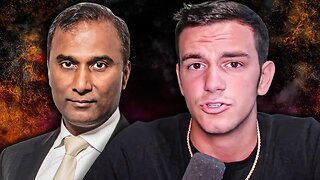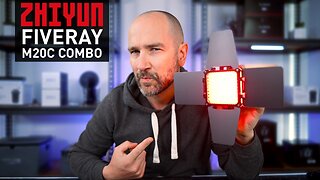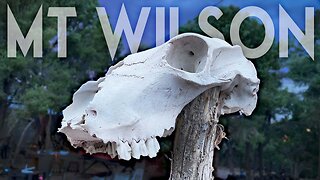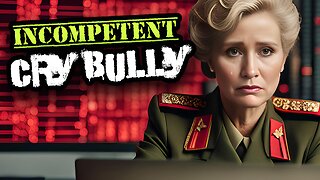TEARS OF THE SUN - "The Journey/Kopano Part 3" - By HANS ZIMMER, with South African artist, LEBO M.
Hans Florian Zimmer; (born 12 September 1957) is a German film score composer and music producer. He has won two Oscars and four Grammys, and has been nominated for three Emmys and a Tony. Zimmer was also named on the list of Top 100 Living Geniuses, published by The Daily Telegraph in 2007.
His works are notable for integrating electronic music sounds with traditional orchestral arrangements. Since the 1980s, Zimmer has composed music for over 150 films. He has won two Academy Awards for Best Original Score for The Lion King (1994), and for Dune (2021). His works include Gladiator, The Last Samurai, the Pirates of the Caribbean series, The Dark Knight trilogy, Inception, Man of Steel, Interstellar, Dunkirk, and No Time to Die.
Zimmer spent the early part of his career in the United Kingdom before moving to the United States. He is the head of the film music division at DreamWorks Pictures and DreamWorks Animation studios and works with other composers through the company that he founded, Remote Control Productions, formerly known as Media Ventures. His studio in Santa Monica, California, has an extensive range of computer equipment and keyboards, allowing demo versions of film scores to be created quickly.
Zimmer has collaborated on multiple projects with directors including Christopher Nolan, Ridley Scott, Ron Howard, Gore Verbinski, Michael Bay, Guy Ritchie, and Denis Villeneuve.
Early life
Zimmer was born on 12 September 1957 in Frankfurt, West Germany. As a young child, he lived in Königstein-Falkenstein, where he played the piano at home but had piano lessons only briefly, as he disliked the discipline of formal lessons. In one of his Reddit AMAs, he said: "My formal training was two weeks of piano lessons. I was thrown out of eight schools. But I joined a band. I am self-taught. But I've always heard music in my head. And I'm a child of the 20th century; computers came in very handy." Zimmer attended the Ecole d'Humanité, an international boarding school in Canton Bern, Switzerland.
He moved to London as a teenager and attended Hurtwood House school. During his childhood, he was strongly influenced by the film scores of Ennio Morricone and has cited Once Upon a Time in the West as the score that inspired him to become a film composer.
In a speech at the 1999 Berlin Film Festival, Zimmer stated that he is Jewish, and talked about his mother surviving World War II thanks to her escape from Germany to England in 1939. In an interview in May 2014, Zimmer revealed that it was difficult growing up in post-War Germany being Jewish and said, "I think my parents were always wary of me telling the neighbors" that they were Jewish. In an interview with Mashable in February 2013, he said of his parents: "My mother was very musical, basically a musician and my father was an engineer and an inventor. So I grew up modifying the piano, shall we say, which made my mother gasp in horror, and my father would think it was fantastic when I would attach chainsaws and stuff like that to the piano because he thought it was an evolution in technology." In an interview with the German television station ZDF in 2006, he said: "My father died when I was just a child, and I escaped somehow into the music and music has been my best friend."
Career
Main article: Hans Zimmer discography
1977–1988
Zimmer began his career playing keyboards and synthesizers in the 1970s, with the band Krakatoa. He worked with the Buggles, a new wave band formed in London in 1977 with Trevor Horn, Geoff Downes and Bruce Woolley. Zimmer can be seen briefly in the Buggles' music video for the 1979 song "Video Killed the Radio Star". After working with the Buggles, he started to work for the Italian group Krisma, a new wave band formed in 1976 with Maurizio Arcieri and Christina Moser. He was a featured synthesist for Krisma's third album, Cathode Mamma. He has also worked with the band Helden (with Warren Cann from Ultravox). Both Zimmer (on keyboards) and Cann (on drums), were invited to be part of the Spanish group Mecano for a live performance in Segovia (Spain) in 1984. Two songs from this concert were included in the Mecano: En Concierto album released in 1985 only in Spain. In 1985, he contributed to the Shriekback album Oil and Gold. In 1980, Zimmer co-produced a single, "History of the World, Part 1", with, and for, UK punk band The Damned, which was also included on their 1980 LP release, The Black Album, and carried the description of his efforts as "Over-Produced by Hans Zimmer."
While living in London, Zimmer wrote advertising jingles for Air-Edel Associates. In the 1980s, Zimmer partnered with Stanley Myers, a prolific film composer who wrote the scores for over sixty films. Zimmer and Myers co–founded the London–based Lillie Yard recording studio. Together, Myers and Zimmer worked on fusing the traditional orchestral sound with electronic instruments. Some of the films on which Zimmer and Myers worked are Moonlighting (1982), Success Is the Best Revenge (1984), Insignificance (1985), and My Beautiful Laundrette (1985). Zimmer's first solo score was Terminal Exposure for director Nico Mastorakis in 1987, for which he also wrote the songs. Zimmer acted as score producer for the 1987 film The Last Emperor, which won the Academy Award for Best Original Score.
One of Zimmer's most durable works from his time in the United Kingdom was the theme song for the television game show Going for Gold, which he composed with Sandy McClelland in 1987. In an interview with the BBC, Zimmer said: "Going for Gold was a lot of fun. It's the sort of stuff you do when you don't have a career yet. God, I just felt so lucky because this thing paid my rent for the longest time."
1988–2000
A turning point in Zimmer's career occurred with the 1988 film Rain Man. Hollywood director Barry Levinson was looking for someone to score Rain Man, and his wife heard the soundtrack CD of the anti-apartheid drama A World Apart, for which Zimmer had composed the music. Levinson was impressed by Zimmer's work and hired him to score Rain Man. In the score, Zimmer uses synthesizers (mostly a Fairlight CMI) mixed with steel drums. Zimmer explained that "It was a road movie, and road movies usually have jangly guitars or a bunch of strings. I kept thinking don't be bigger than the characters. Try to keep it contained. The Raymond character doesn't actually know where he is. The world is so different to him. He might as well be on Mars. So, why don't we just invent our own world music for a world that doesn't really exist?" Zimmer's score for Rain Man was nominated for an Academy Award in 1989, and the film won four Academy Awards including Best Picture.
A year after Rain Man, Zimmer was asked to compose the score for Bruce Beresford's Driving Miss Daisy which, like Rain Man, won an Academy Award for Best Picture. Driving Miss Daisy's instrumentation consisted entirely of synthesizers and samplers, played by Zimmer. According to an interview with Sound on Sound magazine in 2002, the piano sounds heard within the score come from the Roland MKS–20, a rackmount synthesizer. Zimmer joked: "It didn't sound anything like a piano, but it behaved like a piano."
"I listen to [Zimmer's] music and I don't even have to shut my eyes. I can see the pictures. And that's why, in many respects, I know I can talk pictures with Hans. He responds to pictures."
—Ridley Scott, director and producer and frequent collaborator with Zimmer.
The soundtrack to Ridley Scott's 1991 film Thelma & Louise by Zimmer featured the trademark slide guitar performance by Pete Haycock on the "Thunderbird" theme in the film. As a teenager, Zimmer was a fan of Haycock, and their collaboration on film scores includes K2 and Drop Zone. Zimmer wrote the theme for Tony Scott's 1993 film True Romance, which he based on Carl Orff's Gassenhauer. Gassenhauer had previously been used in the 1973 film Badlands, which had a similar story of a young man and a girl on the run following a violent crime. The catchy theme, played on nine marimbas, contrasts starkly with the violence of the film.
For the 1992 film The Power of One, Zimmer travelled to Africa in order to use African choirs and drums in the recording of the score. On the strength of this work, Walt Disney Feature Animation approached Zimmer to compose the score for the 1994 film The Lion King. This was to be his first score for an animated film. Zimmer said that he had wanted to go to South Africa to record parts of the soundtrack, but was unable to visit the country as he had a police record there "for doing 'subversive' movies" after his work on The Power of One. Disney studio bosses expressed fears that Zimmer would be killed if he went to South Africa, so the recording of the choirs was organised during a visit by Lebo M. Zimmer won numerous awards for his work on The Lion King, including an Academy Award for Best Original Score, a Golden Globe, and two Grammys. In 1997, the score was adapted into a Broadway musical version which won the Tony Award for Best Musical in 1998. As of April 2012, the musical version of The Lion King is the highest grossing Broadway show of all time, having grossed $853.8 million.
Zimmer's score for Tony Scott's 1995 film Crimson Tide won a Grammy Award for the main theme, which makes heavy use of synthesizers in place of traditional orchestral instruments. For The Thin Red Line (1998), Zimmer said that the director Terrence Malick wanted the music before he started filming, so he recorded six and a half hours of music. Zimmer's next project was The Prince of Egypt (1998), which was produced by DreamWorks Animation. He introduced Ofra Haza, an Israeli Yemenite singer, to the directors, and they thought she was so beautiful that they designed one of the characters in the film to look like her.
Zimmer's score for the 1998 film The Thin Red Line is regarded as one of his most important works. The nine-minute cue at the climax of the film, "The Journey to the Line", uses a recurring theme based on four chords, combined with a "ticking clock" motif that has been featured in a range of subsequent scores composed by Zimmer. The piece has been used in numerous trailers and video games, and has earned the nickname "the forbidden cue" due to the tendency of film makers to use it as a temp track for dramatic scenes.
For more information on Hans Zimmer, please go to his Wikipedia page at: https://en.wikipedia.org/wiki/Hans_Zimmer
-
 LIVE
LIVE
SonnyFaz
2 hours agoDr. Shiva x Sonny IRL
1,977 watching -
 4:28:03
4:28:03
LumpyPotatoX2
8 hours agoSub-Sunday on Rumble - #RumbleTakeover
36.3K4 -
 26:04
26:04
iamLucid
1 day agoVideo Game Piracy is Unstoppable
62.9K60 -
 16:31
16:31
GeekyNerdyTechy
1 day agoZHIYUN Fiveray M20C Combo Light Review & Tutorial
83.2K6 -
 8:29
8:29
ParisDemers
1 day agoThe Kratos/God Of War Workout Program (His Real-Life Training)
68.9K5 -
 16:14
16:14
CarlCrusher
23 hours agoSkinwalker's Evil Twin - Beyond Skinwalker Ranch Behind the Scenes Season 1 ep 2
71.3K10 -
 58:35
58:35
Crime Circus
1 day agoMackenzie Shirilla KlDNAPPED!! True Crime Documentary!
79.8K26 -
 8:03
8:03
Bearing
1 day agoE-Safety Karen INVENTS Elon Musk HARASSMENT While LEAKING Private Details!
89.5K111 -
 17:16
17:16
Clownfish TV
1 day agoMedia Melting Down Over Mainstream Media Meltdown...
116K85 -
 1:11
1:11
Gamazda
1 day agoFlight of the Bumblebee - Rimsky-Korsakov
109K85